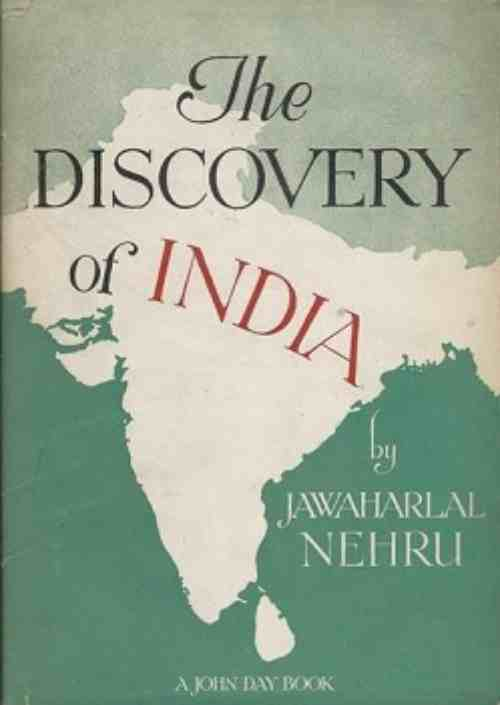As a Covid-19-strapped world has the spotlight trained on scientists and scientific discovery like never before, and discussions on ‘scientific social responsibility’ take centre stage in India, Prof Anita Rampal finds that a rereading of Jawaharlal Nehru’s ‘Discovery of India’ (1946), where he writes about the ‘real temper of science’ as well as its limitations and need for constant evolution, gives much food for thought and debate on how to balance humanist and scientific tempers. (Photo courtesy: Behrens, Herbert/Anefo / Wikimedia Commons)
Greta Thunberg’s campaign to ‘listen to the scientists’ to save the planet, or the unprecedented appeals from scientists to ‘save science from sabotage’ by the US President,[1] have dramatically foregrounded the public role of science in society. A raging pandemic due to Covid-19 has forged a new collaborative urgency—with scientists sharing knowledge while working with social scientists, public health officials and politicians—to manage disease control. Where there was an attempt to establish new social contract[2] by a substantive advisory role of specialists, through transparency, open communication and public acknowledgement of the limitations of the data or changing knowledge of the virus, there has been greater public trust and better compliance. In India this has not happened; the endorsement of pseudoscience and the confused official pronouncements, of the Covid curve 'flattening without ever peaking' or suddenly diving to zero even as it surged exponentially, have caused much ferment.
Also read | Jawaharlal Nehru and the Rise of Indian Cinema
Interestingly, just before scientific opinion dominated global headlines, a draft new policy on ‘scientific social responsibility’ (SSR) was prepared in 2019 seeking to develop linkages between science and society, in the spirit of voluntarily ‘giving back’. Though it claims SSR to be a two-way science–society engagement, yet posits a one-way model with every ‘knowledge worker’ being liable for at least 10 person-days of ‘transmission of scientific knowledge to society’ per year. This directive is for people working in different fields in national and state laboratories, and public and private institutions of higher learning and research. The policy proposes to ‘infuse scientific temperament’, described as ‘an approach to human and social existence that rejects dogma or assertion that contradicts empirical evidence or lacks a scientific basis, that habitually questions everything, that privileges logic and rationality, and is consistently self-critical’.[3] It does not qualify the use of ‘temperament’ instead of temper, or how it can be ‘infused’. As per the Constitution, it is the fundamental duty of every citizen ‘to develop the scientific temper, humanism and the spirit of inquiry and reform.’[4]
This idea of inculcating ‘scientific temper’ is not new. Back in 1946, Jawaharlal Nehru had invoked the ‘temper of science’ almost as a meta concept—in the realm beyond reason and the application of science. he wrote in The Discovery of India:
There appears to be a definite stopping place beyond which reason, ... cannot go. Realising these limitations of reason and scientific method, we have still to hold on to them with all our strength, …The applications of science are inevitable and unavoidable....But something more than its application is necessary. It is the scientific approach, the adventurous yet critical temper of science, the search for truth and new knowledge, the refusal to accept anything without testing and trial, the capacity to change previous conclusions in the face of new evidence, the reliance on observed fact and not pre-conceived theory. ...(This) should be, a way of life, a process of thinking, a method of acting and associating with our fellowmen..... It is the temper of a free man. We live in the scientific age, so we are told, but there is little evidence of this temper in the people anywhere or even in their leaders.’[5]
Science and Philosophy
However, the term scientific temper has tended to be used in a limited sense, as being able to think rationally and scientifically or to not subscribe to ‘pseudoscience or superstition’. Its relationship with humanism is not fully explored. Nehru’s humanistic search was grounded in trying to understand the purposes of life, and being informed by the limitations of science, in the destruction wreaked by war or the exploitation of nature. He reflected on how philosophy and science both used reason and logic, but in different ways. Philosophy encouraged inquiry and concentrated on questions of ultimate purposes of life, but from its ‘ivory towers of the mind’ it failed to connect with fact and life's everyday problems. On the other hand,
[S]cience ignored the ultimate purposes and looked at fact alone... There was no knowledge of ultimate purposes and not even an understanding of the immediate purpose, for science has told us nothing about any purpose in life. Nor did man, so powerful in his control of nature, have the power to control himself, and the monster he had created ran amok. Perhaps new developments in biology, psychology and similar sciences... may help man to understand and control himself ... (or else) man may destroy the civilisation he has built…[6]
Historian David Arnold argues that a philosophical understanding of the temper of science was important for Nehru in different ways, including an assertive articulation of post-colonial subjectivity. He attempted to free science in the non-West from Western hegemony, while maintaining a moral political authority to critique its limitations. He saw that scientific progress ‘encouraged constructive dialogue with other fields of speculation and inquiry—from history and philosophy to psychology and psychoanalysis—each of which might challenge scientific orthodoxy or present its own complementary understanding of the world.’[7]

Humanist vs Scientific Temper
In 1981 a sharp debate had followed after some leading scientists from the Nehru Centre had issued a Statement on Scientific Temper.[8] The statement had focused too narrowly on the scientific method and had prompted sociologists to issue a ‘Counter Statement on the Humanist Temper’,[9] saying that Nehru had been selectively quoted by the scientists and his critique of science ignored. Challenging the positivist position of the scientists, they also showed that claims of the achievements of modern science, such as the eradication of epidemics or famines, ignored the role of social welfare and changes in social and political structures. Their critique also pointed to the high social costs of the ‘superstitions’ which science had created—such as, social eugenics, IQ tests (tied to racial and gender bias about white male superiority) that continue to eliminate millions of children from schools, the unnecessary use of drugs and surgeries, the myth of security promoted by the military-industrial nexus, etc.
Also read | Children’s Magazines and Different Childhoods in Kerala
Indeed, Nehru had underscored that the scientific method itself is not applicable:
[I]n much that is vital to life...the sensitiveness to art and poetry, the emotion that beauty produces, the inner recognition of goodness. The botanist and zoologist may never experience the charm and beauty of nature; the sociologist many be wholly lacking in love for humanity. But even when we go to the regions beyond the reach of scientific method and visit the mountain tops where philosophy dwells, and high emotions fill us, or gaze at the immensity beyond, the approach and temper are still necessary.[10]
Open and Reflexive Science
Nehru’s thoughts seem prescient as they resonate with the present concerns of the pandemic, while reminding us of the early traditions of shared knowledge through inquiry, scepticism and argumentation.[11] Scientists today demand a reflexive transformation in humanity’s relationship with nature, pushing us towards deadlier pandemics and even greater impending crises. Unlike the secretive and competitive procedures of conducting research, during the pandemic scientists are using unprecedented mechanisms to share data and build solidarities of ‘knowledge commons’ across national borders. Nehru had stressed the need to win peace with ourselves and the environment. He felt that the ‘real temper of science’ had not yet been developed even in the West, where science had a dominant position. He wrote:
In India in many obvious ways we have a greater distance to travel, and yet there may be fewer major obstructions on our way, for the essential basis of Indian thought for ages past, though not its later manifestations, fit in with the scientific temper and approach, as well as with internationalism. It is based on a fearless search for truth, on the solidarity of men, even on the divinity of everything living, and on the free and cooperative development of the individual and the species, ever to greater freedom and higher stages of human growth.[12]
Significantly, Nehru had pointed to the tentativeness of knowledge, which was not absolute, since truth as perceived through the limitations of the human mind, ‘has ever to be sought and renewed, reshaped and developed.’[13]
This article was also published on Scroll.in.
Notes
[1] J. Tollefson, ‘How Trump Damaged Science,’ Nature 586 (October 8, 2020): 191–94.
[2] W.E. Bijker, ‘Call for a New Social Contract Between Science and Society,’ Seminar 733 (2020): 16–21.
[3] Government of India, Scientific Social Responsibility Policy (Final Draft) (Department of Science and Technology, Government of India, 2019).
[4] Article 51 A (h), Government of India, Scientific Social Responsibility Policy (Final Draft), (Department of Science and Technology, Government of India, 2019).
[5] J.L. Nehru, The Discovery of India, Centenary Edition (Delhi: Oxford University Press, 1946, 1981), 512.
[6] Ibid., 511.
[7] D. Arnold, ‘Nehruvian Science and Postcolonial India,’ Isis 10, no. 2 (2013): 360–70.
[8] Nehru Centre, ‘A Statement on Scientific Temper’ Mainstream (1981).
[9] A. Nandy, ‘A Counter Statement on Humanistic Temper,’ Mainstream (1981).
[10] J.L. Nehru, The Discovery of India, Centenary Edition (Delhi: Oxford University Press, 1946, 1981), 512.
[11] A. Sen, The Argumentative Indian (Delhi: Penguin Books, 2005)
[12] J.L. Nehru, The Discovery of India, Centenary Edition, (Delhi: Oxford University Press, 1946, 1981), 515.
[13] Ibid., 510.












